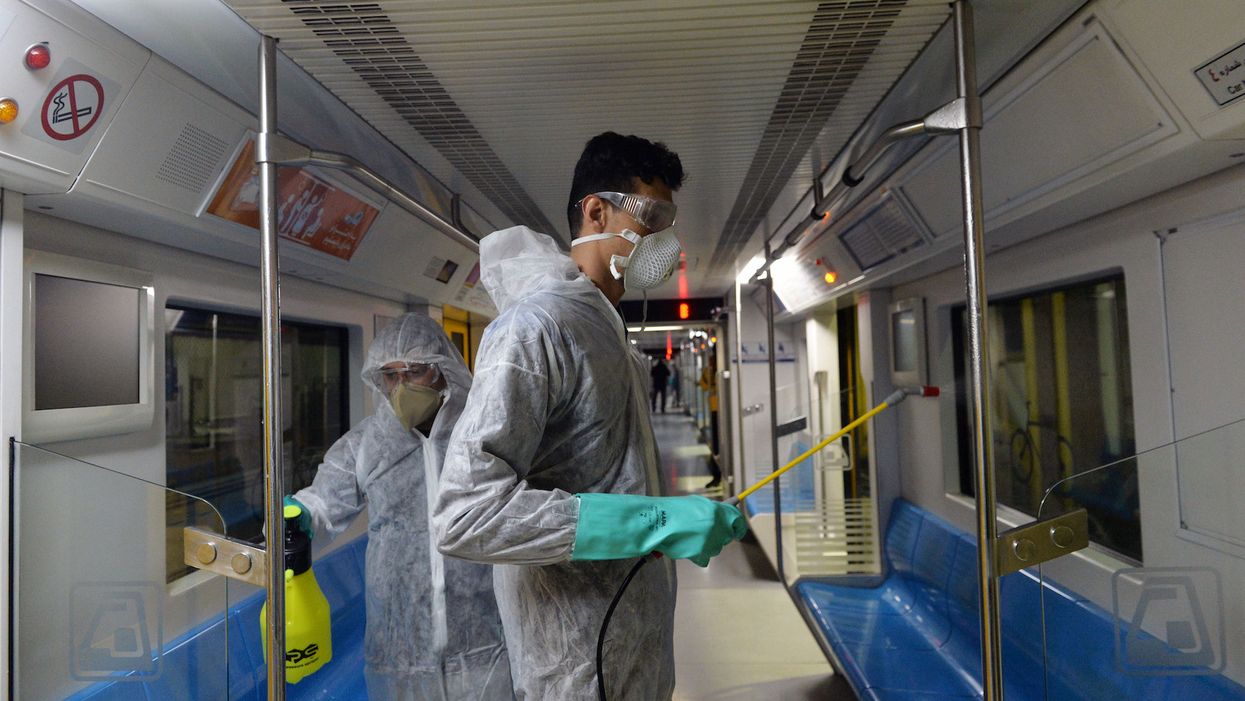
Officials carry out disinfection works at subway trains to prevent spreading the new type of coronavirus in the capital city Tehran, Iran. (Fatemeh Bahrami/Anadolu Agency via Getty Images)

'They always want to hide the truth'
The coronavirus outbreak in Iran may be much worse than officials are letting on, and doctors in the country believe the virus has been there for weeks longer than previously disclosed by the government, according to Time.
Iranian officials have attempted to downplay the seriousness of COVID-19 — but those efforts seem to have contributed to some of those officials getting the virus themselves. Among those officials who have contracted coronavirus are the deputy health minister, a member of parliament, a mayor in Tehran, and the head of a medical university in Qom.
"The reason these government officials are contracting the virus is because, they always want to hide the truth; so they don't use any protective measures when going from this hospital to another just so they project this image that there's nothing serious going on. It's only natural that they have been exposed to the virus," an anesthesiologist in Iran told Time anonymously.
Doctors in Iran believe coronavirus has been there for three or four weeks, although its presence in Iran was not announced by the government until last week. Out of 245 confirmed cases there have been 26 deaths. But medical experts in Iran believe that limitations in Iran's testing capability mean there are likely hundreds more cases that can't be confirmed.
"We didn't have a way to test people earlier and don't have the capacity to screen everyone," an Iranian doctor told Time in a phone interview. "Let me put it this way, if in general two out of 100 corona patients die, in Iran, if we now have 20 deaths that means we have 1,000 infected patients."
Multiple doctors told Time that people have been dying of flu-like symptoms even though they tested negative for the flu. They believe those could've been coronavirus patients, but there was no way to confirm at the time.
In addition to the problem of government officials underestimating or downplaying the severity, some of the sanctions against Iran make it difficult for them to get the supplies they need to treat a higher volume of patients. From Time:
Medical workers also said that their equipment is badly outdated, a situation made worse by the U.S. sanctions on the Iranian economy. Although the U.S. administration says "humanitarian and medical needs" are exempt from sanctions, few European companies dare to do business in Iran in fear of potential retribution from the U.S. Moreover, sanctions on Iranian banks make it highly complicated to carry out transactions with Europe.